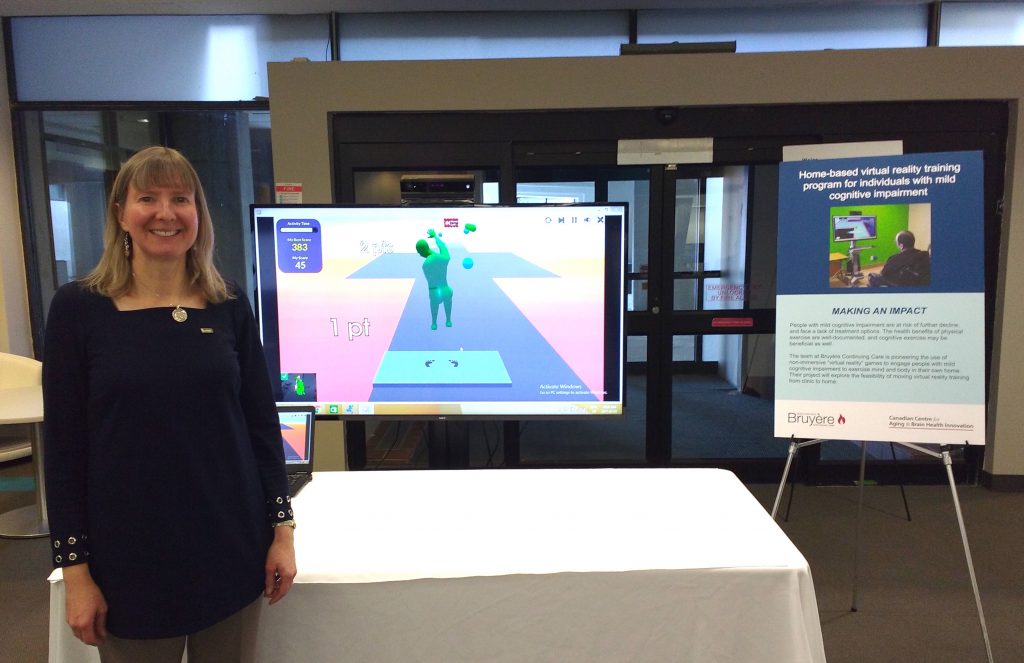In-home Virtual Reality Slows Physical and Cognitive Decline in Seniors

Award Date: 2017
Project Lead(s): Hillel Finestone, Associate Professor
Project Title: Implementation of an innovative home-based virtual reality training program
What is the issue?
Individuals with mild cognitive impairment are at risk for further cognitive and physical decline and falls. There are few treatment options, but physical and brain exercises have shown some promise.
What did we do?
We studied whether using virtual reality at home would help people with mild cognitive impairment exercise more often at a higher intensity. Eleven participants performed the physical activities and brain games for 30 minutes, five times a week for six weeks.
What did we find?
The virtual reality equipment was easy to install in every home. Some participants reported that the games helped them be more active and improved their walking and balance, but those who were usually very active did not see any benefit. People also thought their concentration level improved. Many participants became bored and felt that the activities were too easy. Issues included login problems, cameras not always capturing motion correctly, and frequent problems with 3D eye/hand coordination while playing the games. There were no significant improvements in physical or cognitive abilities over six weeks.

